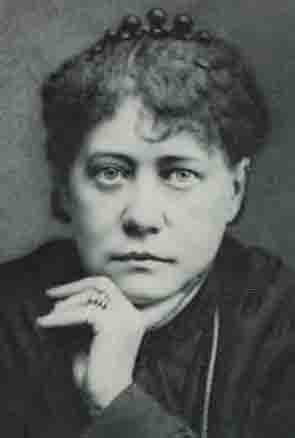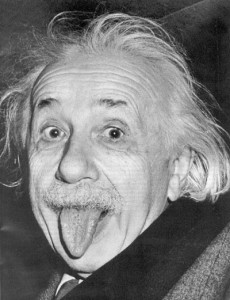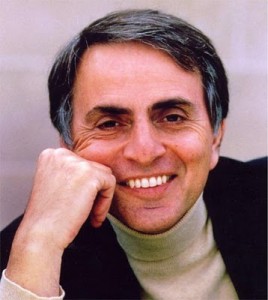20 Spiritualist

“Eany-beany, chili-beany,
the spirits are about to speak!”

Card messages in the Illuminated position.
+ Verification
(faith,veracity,curiosity,fidelity,visionary)
- Faith is far more important than belief, especially in one’s Self. Comprehensive in its scope, the inner state of faith combines a willingness to act when uncertain, a desire to be open to new ideas, and minimization of doubting oneself. If you can’t find faith in you, listen to someone who has faith in you. God is in both of you.
- It could be” that anything is possible when one is open to faith in Spirit. Your being, doing, and having align and you can verify your reality as it arrives. Is there a dream of something that is still awaiting inspiration? Pay attention to details.
- Prayer generates faith because it places your intention on what is important to you. Make an offering to your intention by getting some energy behind it.
- Don’t take anything on face value! Put faith in your own ability to distinguish and verify what is real from what are daydreams or wishful thinking.
Quotes signifying this pole
- “Dreams are illustrations… from the book your soul is writing about you.” Marsha Norman
- “A noble thought is a prayer. An earnest desire is a prayer. A pious longing is a prayer. The sincere sighing of a penitent heart is a prayer. ” Zarathustra (Zoroaster)
- “A large part of the popularity and persuasiveness of psychology comes from its being a sublimated spiritualism: a secular, ostensibly scientific way of affirming the primacy of “spirit” over matter” ~ Susan Sontag
- “I am perfectly convinced that I have both seen, and heard in a manner which should make unbelief impossible, things called spiritual which cannot be taken by a rational being to be capable of explanation by imposture, coincidence, or mistake.” ― Augustus De Morgan
- “Quench not the Spirit. Despise not prophecyings. Prove all things; hold fast that which is good.” I Thessalonians 5:19-21
Card messages in the Shadow position.
– Credulity
(belief, doctrine, ideology, dilettante, )
- How many wars have been fought over beliefs? Jihads, crusades, and genocides, are always justified by the offender’s doctrine. Karmic payback will arrive shortly.
- Emotionally charged notions boil robustly, fueled by allegiance to superstition or traditions. Is the cause or agenda you’ve been pushing being imposed onto others?
- Credulity and equivocation is the mark of the true believer. It is usually the mask behind which cruelty may hide. Is someone justifying cruelty when being stern is all that is necessary?
Quotes signifying this pole
- “Once you attempt legislation upon religious grounds, you open the way for every kind of intolerance and religious persecution.” William Butler Yeats
- “Believing is easier than thinking. Hence so many more believers than thinkers.” ~Bruce Calvert
- “What luck for rulers, that men do not think.” Adolph Hitler
- “There are two kinds of secrets. The ones we keep from others and the ones we keep from ourselves.” ~ Frank Warren
Relevance within the Michael Teaching
Spiritualist is an attitude that inspires a search for purpose and meaning in life. A view, stated or otherwise, that there is a “reason” for everything, and a “divine right order” pertains to people viewing life through this lens. Thus, as if looking off into heaven or peering into some alternate reality, the Spiritualist can glow a warm, dreamy eyed, expression, that might be called angelic.
The Spiritualist person, tends to have a view of the world that contains open ended and non defined qualities with a mindset that “anything is possible.” Optimism is common with them since they have a vision of reality that is hopeful and places faith in man and Spirit to move themselves and the world through whatever calamity they/it might face.
 Sometimes thought of as being idealistic, the Spiritualist differs in that it’s view of the world is not a fix set of images or standards which more characterize the Idealist. Instead they are visionary. They posses a faith that the world can achieve a state of feeling uplifted, implying some romantic notion more visceral and and intangible. A well known historic example is the Christian myth of the Shining City on the Hill. Another distinction between the two is that the Idealist will tend to pedestalize someone they believe to be intellectually superior in articulation or pursuit of that idea. It is about the Intellectual Center. But with Spiritualist, having laced within it a desire for Messianic perfection, any charismatic figure expressing their beliefs (Elmer Gantry) with a Passion that seems unshakeable, then their will be something far more profound and even dangerous occurring…demagoguery! The best known example of this effect on a population was Adolf Hitler.
Sometimes thought of as being idealistic, the Spiritualist differs in that it’s view of the world is not a fix set of images or standards which more characterize the Idealist. Instead they are visionary. They posses a faith that the world can achieve a state of feeling uplifted, implying some romantic notion more visceral and and intangible. A well known historic example is the Christian myth of the Shining City on the Hill. Another distinction between the two is that the Idealist will tend to pedestalize someone they believe to be intellectually superior in articulation or pursuit of that idea. It is about the Intellectual Center. But with Spiritualist, having laced within it a desire for Messianic perfection, any charismatic figure expressing their beliefs (Elmer Gantry) with a Passion that seems unshakeable, then their will be something far more profound and even dangerous occurring…demagoguery! The best known example of this effect on a population was Adolf Hitler.
In assessing their reality, the Spiritualist does not limited themselves to facts but to a sense of truth extracted from personal experience. In that way their forecasting can shape a future even when the present does not corroborate their belief. In practice, an honest Spiritualist must constantly seek verification and validation of his beliefs, willingly modifying and moderating what things could be with what things are. This combination makes the Spiritualist in the positive pole adaptable in approach but more solidly grounded in their faith. A deep seated assurance in a constancy of foundation in their perspective being borne out from realistic assessments through inner guided or constructed filters. However, in the negative pole, a Spiritualist abandons all facts, completely fabricates their own, or projections his/her beliefs to deny truth they cannot conceive. Case in point is the debate about Darwin’s Theory of Evolution.
In the negative pole, the Spiritualist can suffer from an extreme rigidity like their governing parent archetype the Priest. His/her inspiration derives solely from assertion of and imposition of their beliefs. Credulous to a fault, the fearful Spiritualist, unconsciously unsure and lacking true commitment, uses and defends his belief like an animal defends its small warren. Both live in the fragile and unstable shroud which they use to protect themselves against anything that might rock their world.
In either pole, and to varying degrees of course, the Spiritualist is most likely to seek out some metaphysical or mystical system whether it be organized religion, shamanic, psychic, or simply an adherence to the ideas of good and bad luck. In the early Soul Ages, Spiritualist can be superstitious and ardent devotees of teachers or deities.
Fearing not to be in alignment, (with whatever unseen source of power they may ascribe) or the wages of sin or bad karma etc. The Spiritualist does not like the harder more difficult emotions, those that are dry or painfully coarse revealing reality in ways they cannot explain or account for with their beliefs. The need for “wishful thinking” is high since it leaves all doors open to them and does not confine them into one world view.
For years, Michael has swayed back and forth over the use of the word “faith.” For Warrior-King Intellectually Centered Realists as they are, has had little use or tolerance for any codified doctrine. Especially those which either encourages or requires abdication of ones own continually maturing sense of responsibility for “creating their own reality.” But it is the abdicating ones spiritual sovereignty to another supposedly more “wise” or “holy” that Michael sees as potentially the most damaging. The teacher should not lead, but guide. They should impart information not drum doctrine or dogma or propaganda into a person.
 Instead, Michael recognize faith (for want of a better word) as being a part of the Higher Emotional Center. Not precisely an emotion, but something that stabilizes all the centers in a way that vaults a person into action when the rational mind or limited resources would deem such a move as folly or impossible. The Fool, as characterized by the Tarot archetypal is the one that goes outside their comfort zone or safety zone willingly and without fear. But not without a direction even if a plan may not be evident.
Instead, Michael recognize faith (for want of a better word) as being a part of the Higher Emotional Center. Not precisely an emotion, but something that stabilizes all the centers in a way that vaults a person into action when the rational mind or limited resources would deem such a move as folly or impossible. The Fool, as characterized by the Tarot archetypal is the one that goes outside their comfort zone or safety zone willingly and without fear. But not without a direction even if a plan may not be evident.
Lastly, in the extreme, the Spiritualist will tend to consult other supernatural forces relying upon things like divination, psychic forecast, omens, and prayer. By that very act of superstitious distrust of what is physical, they turn away from being in life and concentrate upon the ethers, the afterlife, or other “transcendent” levels of existence.
Famous Persons
Paul McCartney, Audrey Hepburn, Shirley Maclaine, Judy Collins, Jimmy Carter, Doris Day, Marilyn Monroe, Mr. Rodgers, Joni Mitchell, Elvis Presley, Michael Jackson, Carl Sagan
Cultural Relevance
 Spiritualism, the seeking of underlying grand scheme or structure from unseen sources are the basis for religion, occultism, and scientific curiosity as well. The modern day Spiritualist is less a practitioner of some esoteric or byzantine rituals or beliefs so much as they espouse that not everything can be known, but it might be felt “gut level” or “in their bones”.
Spiritualism, the seeking of underlying grand scheme or structure from unseen sources are the basis for religion, occultism, and scientific curiosity as well. The modern day Spiritualist is less a practitioner of some esoteric or byzantine rituals or beliefs so much as they espouse that not everything can be known, but it might be felt “gut level” or “in their bones”.
But the divergence of the science from mystical seeking comes from a significant difference of attitude. Science not by stated design, but by underlying philosophical bias toward a mechanical/manageable/predictable universe, seeks not only to eschew any concept of God, but engages in a mad dash to co-opt any of ITS presumed powers. Thus rendering, as Nietzsche had asserted, God is dead.
Yet, where does one search for God? And, does one presume that since a car is a mechanical object it did not have a designer and manufacturer? For millenia, in the Western traditions primarily (which is also the Scientific tradition as well) has focused the search out-there into the Universe. But what is being called upon in the modern era, the Mature Soul paradigm, is to turn ones attention in-here toward the center of one’s Soloverse. Only there can any semblance of God be located in any meaningful way. For practically speaking, a search for God is a search for meaning itself. And derived from that meaning will result in an understanding and certitude about manifesting one’s power and attaining a level of connectedness called love.
The day of reckoning is everyday. How ones lives in a spirit of peace or prosperity or brotherhood or integrity is with themselves. Perhaps we might call it their conscience. If the scientific mind reduces conscience to a banal hypothetical construct, rather than what someone pursuing deep Spiritual understanding might call their meeting place with God (whatever IT might be) then humans will fall into a robotic ranking of each other and view life as a fatal endeavor.
The Spiritual urge within every human being may not set it’s sights on any specific application of religiosity, but it does play a part in everyone. Individuals, more often than not, will seek meaning at very least, to derive some sense of safety or place in the world. Conclusions may not all be transcendent nor eloquent or deep, but they serve as a psychological and emotional anchor from which a person holds a “stable data” about reality and their relationship to it. Others employ meaning as the foundation of purpose. To find one’s Spirit is to reach the kind of deep reckoning within. It need not be termed or categorized by psychological or religious pursuits. In fact, the U.S. Army’s motto “Be all that you can be” is an example befitting this definition of Spiritualist.
 No matter what the reality of the mechanical universe might imply, how we operate as “Spiritual Beings on a Human Path” seems to be governed by an independent variable called choice. And choice is motivated by more than simply fear of loss, the need to maximize security or gain, it is motivated by love as well. Such devotion may or may not win the day, but it is by far not only the noble way to discern life and inspire ones motives, it is necessary!
No matter what the reality of the mechanical universe might imply, how we operate as “Spiritual Beings on a Human Path” seems to be governed by an independent variable called choice. And choice is motivated by more than simply fear of loss, the need to maximize security or gain, it is motivated by love as well. Such devotion may or may not win the day, but it is by far not only the noble way to discern life and inspire ones motives, it is necessary!
Despite the foretelling of Prophets, those promising fire and brimstone, rapture and apocalypses, or transcendence, ascension, and of a joyful golden age, we cannot be sure of anything. But if we have faith in our ability and willingness to expand our vision and recognize our material resource limitations; turning within for solace rather than blithe consumption, then hope that the future for the human family is bright. However, belief substituted for action, is neglect and delusion. Hell comes from the disconnect between ones actions and a failure to live in accord with ones beliefs. Especially if those beliefs extend from core values, not just impose or conditioned doctrine.
Spiritualism need not become rational nor reasonable, but it must be demonstrated as “walking the talk.” If we do this, drawing courage from that deep personal Spirit within; which some prefer to call God, then any opposing action motivated by the tyranny of authority will eventually fail under its own corrosive and toxic mire.
In the final analysis, the tipping point of change will come when it is recognized that regardless of its source, love and not fear, must by necessity take over as the fuel governing decision making. Until that alchemy is achieved and motivation moves from principle rather than profit, then we shall continue to see an abandonment, let alone a denial of the effectiveness of any higher virtues. We will devolve into survival of the fattest. (yes, fattest…at this rate of consumption).
But, in accordance with the tenants of a good Spiritualist attitude…I’m keeping my fingers crossed!
Spiritualist is your Attitude if…
- I feel a deeper need to know.
- I don’t like fixed options. I prefer to create my own.
- With a little luck, all things will turn out.
- I cannot be bothered by too much worry, things will work themselves out.
- When people are harsh, I want to recoil or make them wrong.
- There is nothing that we cannot do if we just have faith.


